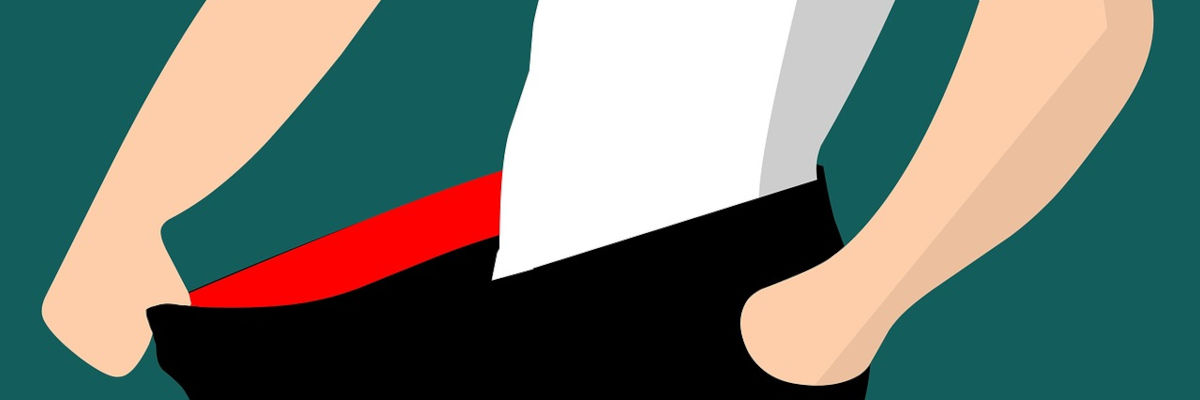Are you on a quest to lose 20 pounds? Perhaps you're seeking answers to questions like; 'How quickly can you lose 20lbs?' or 'What are reasonable weight loss goals?' Look no further; this article is yours to explore. As a part of this journey, we'll emphasize the importance of realizing how to set realistic weight loss expectations, and how to go about achieving them. Let's launch into your 20lbs countdown.
Setting the Stage: Understanding Your Weight Loss Goals
Before kicking off your weight loss expedition, it's vital to have clearly defined goals. However, in the wellness sphere, a prevalent trend is to set overly-ambitious weight loss goals such as, 'I want to lose 20 pounds in a month.' This approach is not only unrealistic but can also be discouraging when you don't meet the set target. Thus, when you start this journey, it's crucial to understand that weight loss is usually a gradual process.
The time it will take to shed 20 pounds solely depends on individual factors such as age, gender, metabolism rate, diet, and the frequency and intensity of your exercise regimen. According to health experts, a healthy weight loss rate is typically 1-2 pounds per week. Therefore, if you're pondering on 'How quickly can you lose 20 lbs,' based on this rate, it would take about 10 to 20 weeks.
Remember, the journey to weight loss isn't a race. What matters is not how fast you reach your goal, but how sustainably you can maintain it. Therefore, setting achievable targets and giving yourself enough time is far more impactful. Let's walk you through the process of setting realistic weight loss expectations.
How to Set Realistic Weight Loss Expectations
One of the primary keys to weight-loss success is to set realistic and motivating goals. Using the SMART (Specific, Measurable, Achievable, Relevant, and Time-Bound) goal framework can be an excellent guide. It enables you to establish a meticulous plan, track your progress, and adjust your expectations as you go forward.
First, specify your weight loss target; say, 'I want to lose 20 pounds.' Make sure it is measurable; you must be able to track your progress either through the scale or through physical changes you notice. The goal must also be achievable; rapid weight loss plans often backfire. In alignment with the 1-2 pounds per week guideline, 20 pounds should realistically take approximately 3 to 5 months to lose.
The goals you set also need to be relevant to your individual situation. If you are only slightly overweight, for instance, losing 20 pounds might be neither healthy nor achievable. And finally, set a feasible deadline for achieving your goal, but be mindful not to rush yourself lest it leads to frustration and giving up.
By setting realistic expectations, you create a roadmap that guides you through your weight loss journey and helps you remain in the game for the long term.
As an experienced author and avid fitness enthusiast, I’m excited to share insights on setting realistic weight loss goals and how to achieve them. This article helps continue our series on "Your 20lbs Countdown".
Now, let's get to the nitty-gritty. When it comes to weight loss, setting unrealistic goals typically backfires as it can lead to loss of motivation and potentially unhealthy practices. Clearly, we want to avoid this road.
Therefore, your weight loss journey should start with creating achievable and realistic goals. According to recommendations from the Centers for Disease Control and Prevention, a healthy weight loss rate is around 1-2lbs per week. To lose 20lbs, it would hence be reasonable to set a timeframe of approximately 10-20 weeks.
Start Small and Stay Consistent
In the earliest stages of your weight loss journey, it's better to start with more modest, attainable goals. For instance, try to focus initially on losing 5lbs instead of ambitious 20lbs. As you successfully reach these smaller milestones, you’ll gain confidence and stay motivated to continue your pursuits.
Consistency is another vital factor in weight loss. Make sure to establish daily healthy eating and exercise habits rather than trying to accomplish everything in a few days.
Be Patient and Don't Give Up
Irrespective of the weight loss plan you choose, remember that you are in it for the long haul. It's not a sprint, it's a marathon. Be Patient, stay consistent, and most importantly, don't give up. Reach out to your support network, if you have one, when you’re feeling demotivated.
Track Your Progress
Finally, keep a close eye on your progress. By monitoring your weight loss and dietary habits, you can see your development, identify areas needing improvement, and celebrate achieving the milestones. There are many mobile apps available to assist you to track your progress and stay on course.
Summing it up, setting realistic goals, starting small and gradual, maintaining consistency and patience, and tracking your progress are all effective strategies to achieve your weight loss goal of shedding those stubborn 20lbs. Remember, the key is not simply losing weight but fostering a healthy and sustainable lifestyle that will keep the weight off in the long term.
Until next time, keep your fitness goals alive and remain consistent in your journey!




